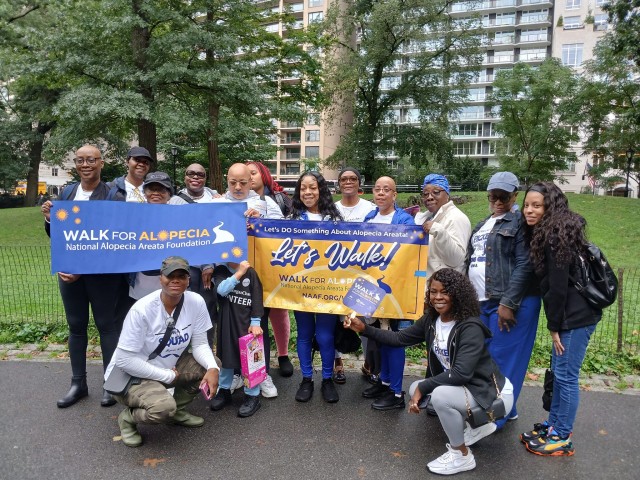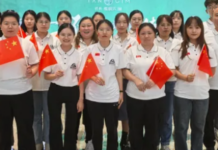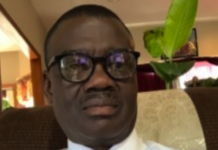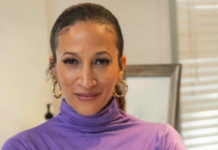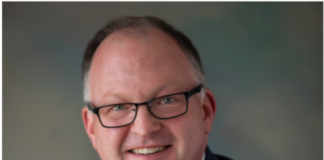Second annual event surpasses by goal by $40,000,
Inaugural 2023 Walk For Alopecia raised $620,000 demonstrating 52% fundraising increase in 2024
(Isstories Editorial):- San Rafael, California Oct 22, 2024 (Issuewire.com) – The National Alopecia Areata Foundation (NAAF) is proud to announce its 2nd Annual Walk For Alopecia has exceeded its $900,000 fundraising goal. Thanks to the generosity of donors and sponsors and the fundraising efforts of the alopecia areata community, 2024’s Walk has raised a current total of $943,036. A surprise additional gift from National Gold Sponsor RBC Capital Markets put the fundraising total over the top. NAAF is now hoping to reach $1 million, and donations can be made at www.naaf.org/walk. Surpassing the original goal is an achievement for which NAAF’s strong community can be justifiably proud and demonstrates that there are great needs that still need to be addressed.
More on Isstories:
- How Apolosign’s Dual-System Digital Calendar Is Shaping the Future of Family Time
- Trellissoft Launches AI Operational Readiness Assessment Service
- FurGPT Deploys Multimodal Intelligence to Enable Natural AI Companion Engagement
- Atua AI Builds Real-Time Control Models to Improve Multichain Coordination
- Florida’s Roofing Revolution: How HomeX is Transforming the Way Homeowners Protect Their Homes in 2025
“NAAF created the Walk for Alopecia to provide a way for the many millions of people impacted by this common autoimmune disease to do something about alopecia areata,” says Nicole Friedland, NAAF’s President and CEO, “so many did just that in September, showing the world that alopecia areata is not just hair. Because of the Walk, we are able to drive more alopecia areata research and provide more services to our community.”
Surpassing the $620,000 raised by the first Walk in 2023, this achievement gives NAAF the means to further support the alopecia areata community and raise awareness to reduce stigma and improve lives, so those with this autoimmune disease may be empowered with more choices. That this same community played such a key role in the Walk For Alopecia exceeding its goal proves its empowerment is real and growing.
The Walk For Alopecia was the finale of Alopecia Areata Awareness Month in September and the largest alopecia areata awareness and fundraising campaign in the nation. People living with alopecia areata, their families, caregivers, friends, co-workers, and healthcare professionals rallied together in communities across the country on September 28th to help drive research for treatments and a cure, increase support, advocate for change, and end stigma.
The alopecia areata community was out in full force led by celebrity Walk Chair, Grammy-winning musician-songwriter Molly Tuttle and CBS News anchor Aziza Shuler as Walk For Alopecia events were held in Austin, Houston, Los Angeles, Minneapolis-St. Paul, New York City, Philadelphia, San Francisco, St. Louis, and South Florida/Ft. Lauderdale. Participants could also “Walk Where You Are” in their own community as a team or individual. Visit naaf.org/walk for more information or email [email protected].
“Losing my hair was like losing a limb,” says Deirdre Nero, a Miami attorney who lives with the most severe form of the disease and serves as the chairperson of the National Walk For Alopecia Committee, “I would look in the mirror and not recognize who I saw looking back at me.” Diagnosed in two percent of the total population or nearly seven million Americans and frequently dismissed as a cosmetic condition, alopecia areata is a chronic autoimmune disease that has a tremendous psychosocial impact. The resulting depression, anxiety, and loss of self-identity increase the demand for services, support, and a cure.
National sponsorship support for the Walk For Alopecia was generously provided by Pfizer, Sun Pharma, Eli Lilly & Co., RBC Capital Markets, AbbVie and Sanofi. RBC Capital Markets increased its sponsorship level after seeing the impact alopecia areata has on its employees and how deeply their team engaged in supporting the Walk for Alopecia efforts.
About Alopecia Areata
Alopecia areata is a common autoimmune disease affecting nearly seven million Americans that results in the unpredictable, often sudden, and severe hair loss. People with alopecia areata most often lose hair in circular, coin-sized patches on the scalp but in more severe cases they may lose all the hair on their body. Alopecia areata can begin at any age, but most develop it early in life, impacting adults and children. More than 80 percent show signs of the disease before age 40, and 40 percent experience symptoms by age 20. Research suggests that women are more likely to develop alopecia areata than men and that the odds of developing alopecia areata are higher among persons of color. Frequently dismissed as a cosmetic condition, alopecia can be a deeply traumatic experience, resulting in emotional and economic pain and social isolation. It is not just hair.
About the National Alopecia Areata Foundation
The National Alopecia Areata Foundation (NAAF) drives research to find a cure and accessible treatments for alopecia areata, supports those impacted, and educates the public about the disease. Founded in 1981, NAAF is the largest alopecia areata patient advocacy organization in the world, connecting members of the alopecia areata community, including those living with the disease, family members and caregivers, healthcare providers, and researchers through its many programs. NAAF is recognized by the Internal Revenue Service as a 501 (c) 3 charitable organization and has achieved the highest rankings from charity watchdogs. For more information, please visit www.naaf.org, email [email protected], or connect with NAAF on Facebook, Instagram, LinkedIn or X.
Media Contact
Gary Sherwood
[email protected]
415.472.3780
This article was originally published by IssueWire. Read the original article here.

